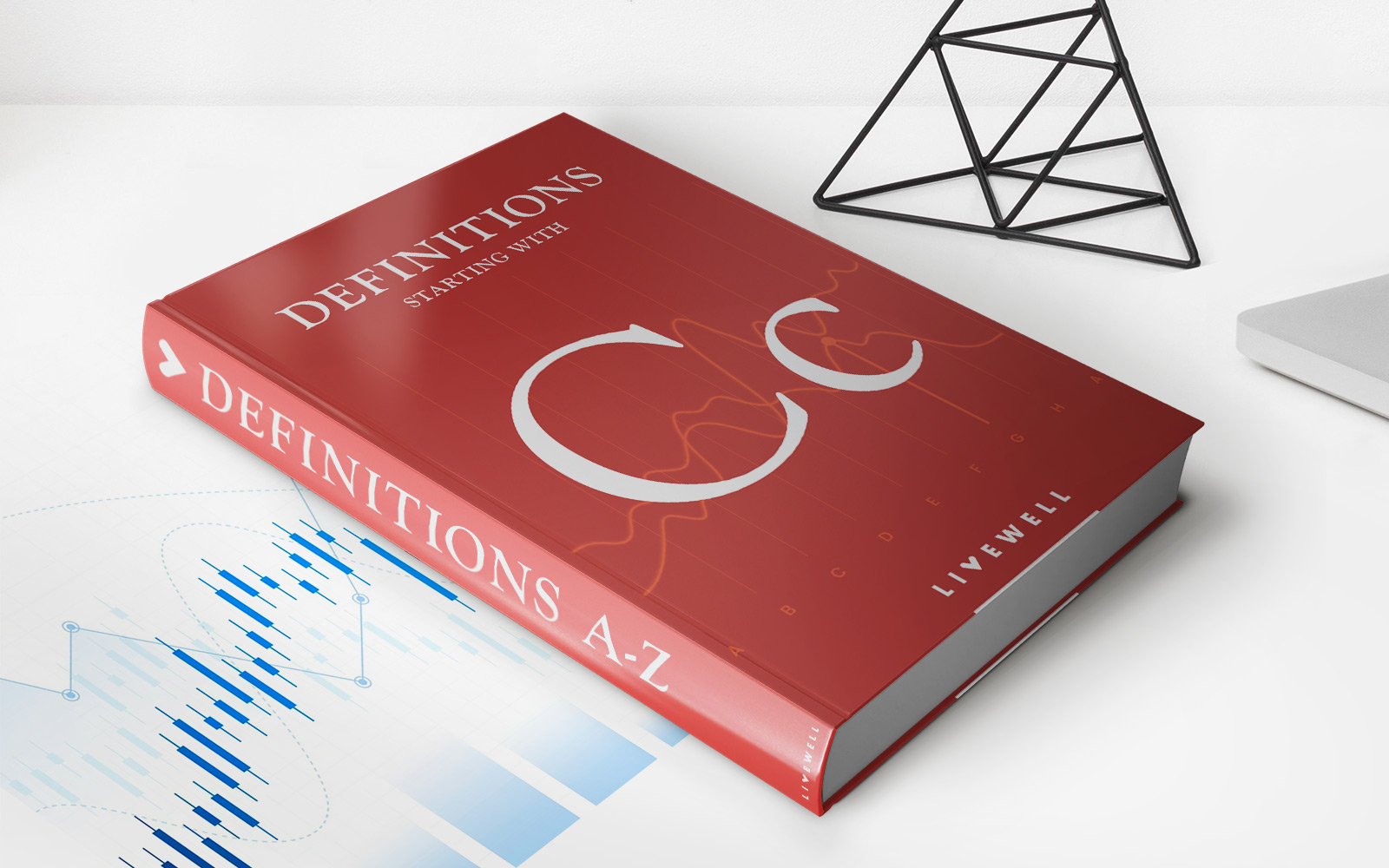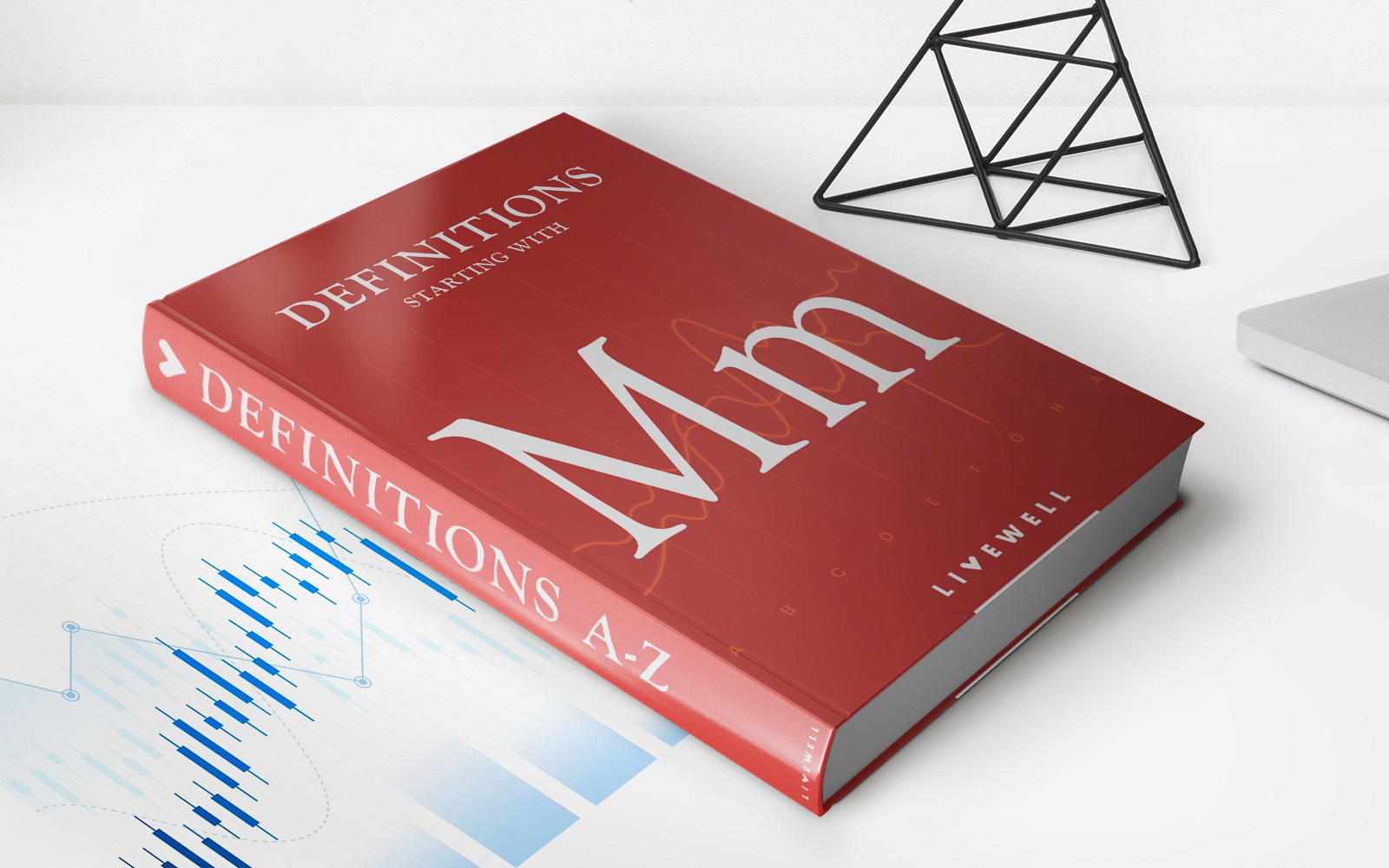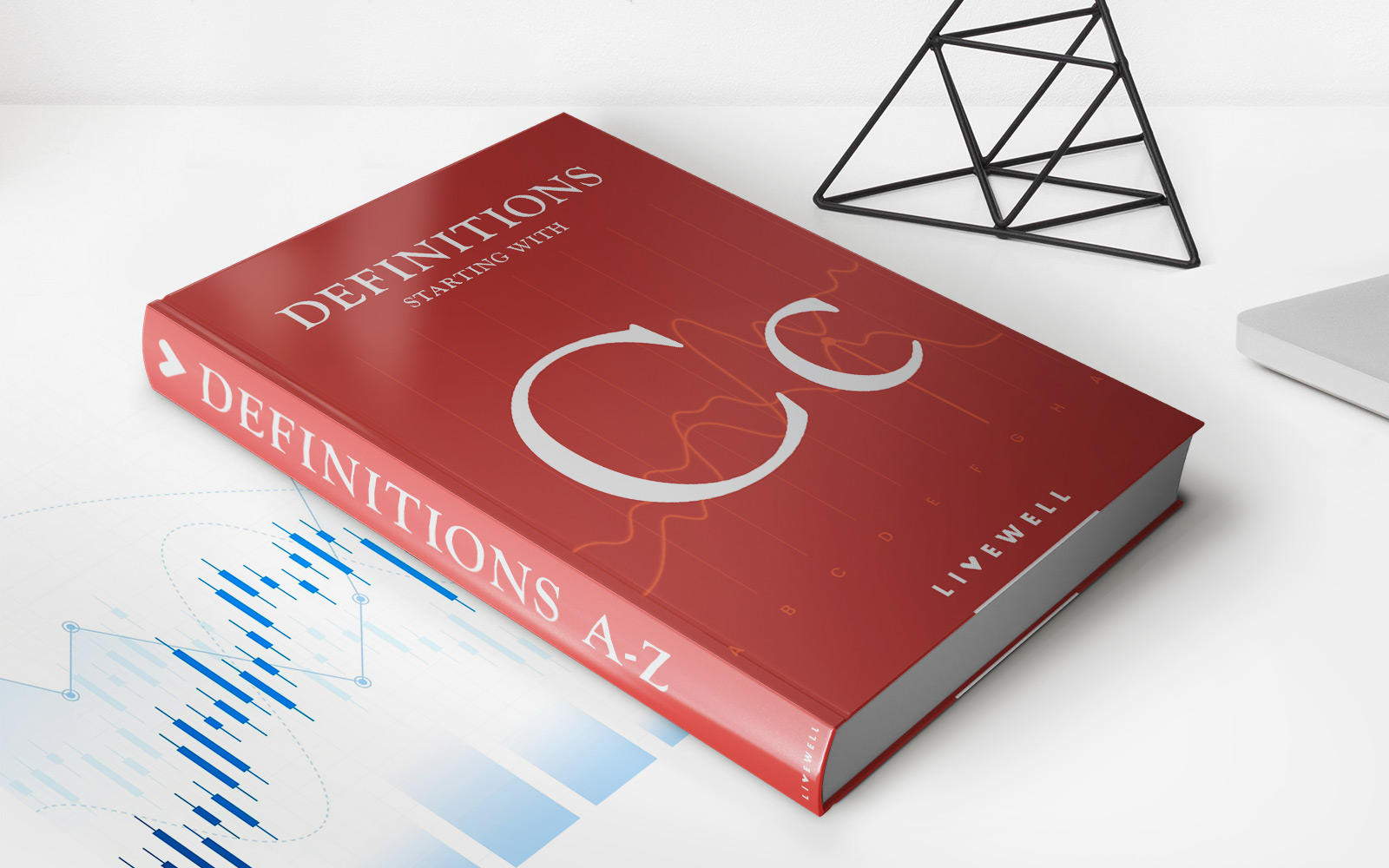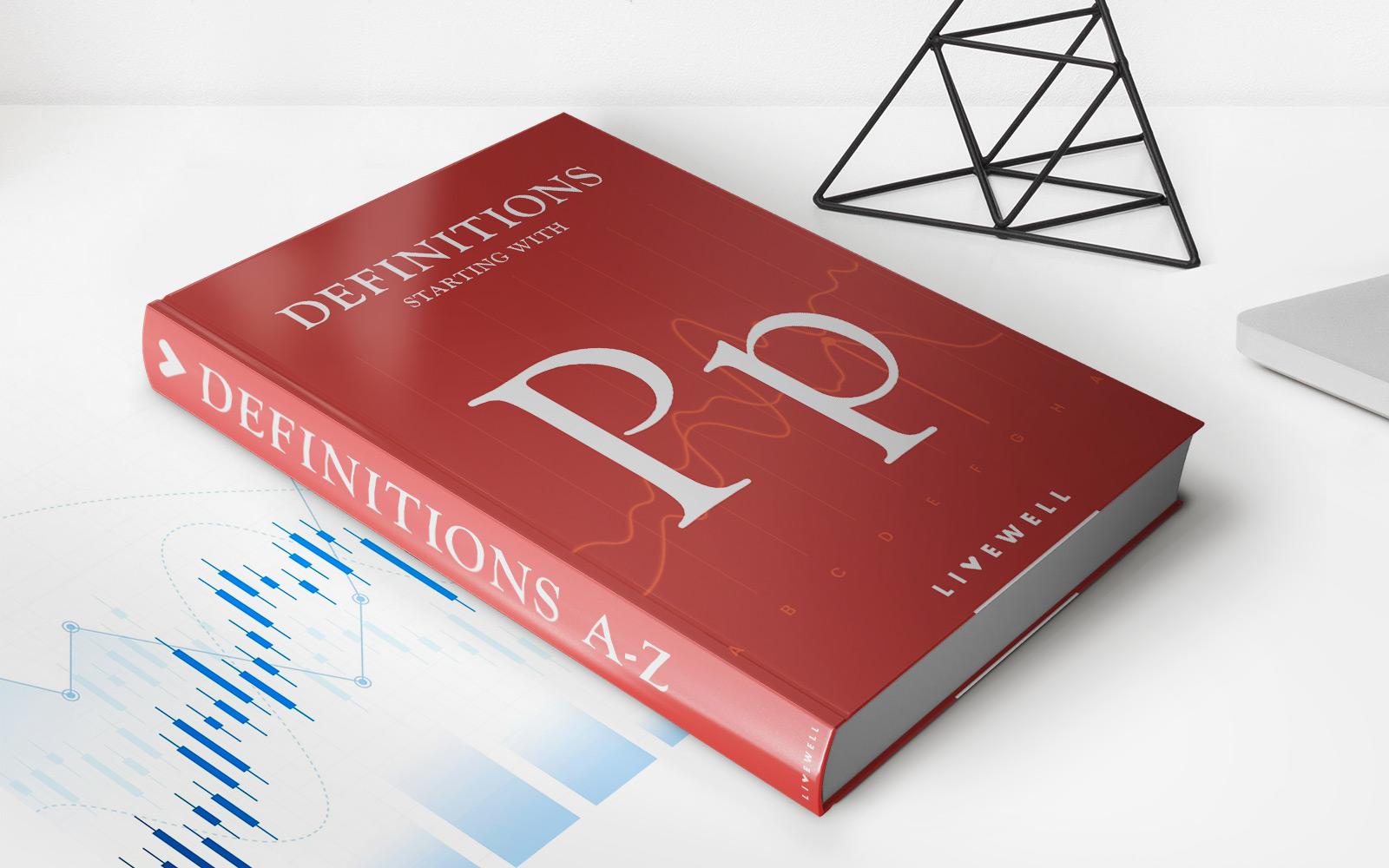Home>Finance>How Hard Is The Property And Casualty Insurance License Exam?


Finance
How Hard Is The Property And Casualty Insurance License Exam?
Modified: January 22, 2024
Prepare for the challenging Property and Casualty Insurance License Exam with confidence. Gain essential knowledge in finance to ace your test and unlock new career opportunities.
(Many of the links in this article redirect to a specific reviewed product. Your purchase of these products through affiliate links helps to generate commission for LiveWell, at no extra cost. Learn more)
Table of Contents
- Introduction
- What is the Property and Casualty Insurance License Exam?
- Importance of the Property and Casualty Insurance License Exam
- Content and Format of the Exam
- Difficulty Level of the Exam
- Study Resources and Preparation Tips
- Strategies to Pass the Exam
- Common Challenges Faced by Test Takers
- Benefits of Passing the Property and Casualty Insurance License Exam
- Conclusion
Introduction
Welcome to the world of property and casualty insurance! If you’re considering a career in the insurance industry, one essential step is obtaining your property and casualty insurance license. This license allows you to sell insurance policies that protect individuals and businesses against property damage and liability. But before you can embark on this exciting journey, you’ll need to pass the property and casualty insurance license exam.
The property and casualty insurance license exam serves as a benchmark to evaluate your knowledge and understanding of insurance laws, policies, coverages, and regulations. It is designed to ensure that you have the necessary expertise to guide clients through the complex world of property and casualty insurance.
Obtaining your property and casualty insurance license not only opens up numerous career opportunities, but it also establishes your credibility and professionalism in the insurance industry. This license demonstrates your commitment to providing accurate and reliable advice to clients and helping them select the most appropriate insurance coverage for their needs.
The property and casualty insurance license exam covers a range of topics, including property insurance, liability insurance, auto insurance, workers’ compensation, ethics, and more. It tests your understanding of insurance concepts, policies, and regulations, as well as your ability to apply them in real-world scenarios.
Preparing for the exam requires dedication, time, and effort. It is essential to have a solid understanding of insurance principles, terminology, and industry practices. In addition to studying the required materials, utilizing effective study resources and exam preparation strategies can significantly increase your chances of success.
In this article, we will explore the content and format of the property and casualty insurance license exam, discuss its difficulty level, provide study resources and preparation tips, and offer strategies to help you pass the exam with flying colors. We will also address common challenges faced by test takers and highlight the benefits of obtaining your property and casualty insurance license.
So, whether you’re just starting your insurance career or looking to expand your expertise, let’s dive into the world of the property and casualty insurance license exam and discover what it takes to ace it!
What is the Property and Casualty Insurance License Exam?
The property and casualty insurance license exam is a standardized test that assesses the knowledge and understanding of individuals seeking to become licensed insurance agents in the property and casualty insurance sector. This exam is administered by regulatory bodies in each state to ensure that insurance professionals possess the necessary skills and expertise to protect individuals, businesses, and assets against property damage and liability.
The exam covers a wide range of topics related to property and casualty insurance, including the principles of insurance, insurance policies and coverages, state insurance laws and regulations, ethics, and more. It measures your understanding of key concepts, terminology, and industry practices, as well as your ability to apply them to real-world scenarios.
The property and casualty insurance license exam typically consists of multiple-choice questions, although some states may include additional question types such as true/false or fill-in-the-blank. The number of questions and the allotted time for the exam vary depending on the state, ranging from 100-150 questions to be completed within 2-3 hours.
To earn your property and casualty insurance license, you must achieve a passing score on the exam, which is determined by each state’s regulatory body. The passing score generally ranges from 70% to 75%, but it’s essential to check the specific requirements of your state.
It’s important to note that the property and casualty insurance license exam is different from the life and health insurance license exam. While both cover important aspects of the insurance industry, the property and casualty exam focuses specifically on insurance policies related to property, such as homes, automobiles, and businesses, as well as liability coverage against potential legal claims.
Preparing for the property and casualty insurance license exam requires a comprehensive understanding of insurance principles and coverages. It is essential to study the relevant materials provided by your state’s regulatory body, as well as utilize additional study resources such as textbooks, online courses, practice exams, and study guides.
By investing time and effort in exam preparation and gaining a deep understanding of the property and casualty insurance field, you will be well-equipped to confidently tackle the exam and embark on a rewarding career as a licensed property and casualty insurance agent.
Importance of the Property and Casualty Insurance License Exam
The property and casualty insurance license exam holds significant importance for both aspiring insurance professionals and the clients they serve. Here are a few key reasons why this exam is crucial:
Ensuring Competence: The property and casualty insurance license exam serves as a measure of an individual’s knowledge and understanding of insurance laws, policies, coverages, and regulations. By passing this exam, insurance agents demonstrate their competence and ability to provide accurate and reliable advice to clients. It assures clients that the licensed agent they are working with has the necessary expertise to guide them through the complexities of property and casualty insurance.
Protecting Consumers: The exam minimizes the risk of insurance fraud and unethical practices by ensuring that licensed agents have a comprehensive understanding of insurance principles, policies, and industry standards. Clients can trust that the advice they receive from a licensed agent is in their best interest and compliant with state regulations.
Building Professionalism and Credibility: Obtaining a property and casualty insurance license signifies a commitment to professionalism and continuing education within the insurance industry. It demonstrates to clients, employers, and colleagues that you have achieved a certain level of expertise in the field and are dedicated to upholding ethical standards and providing quality service.
Expanding Career Opportunities: Holding a property and casualty insurance license opens the door to a wide range of career opportunities. It allows individuals to work as insurance agents, brokers, underwriters, claims adjusters, risk managers, and more. With a license in hand, professionals can explore various sectors of the insurance industry and advance their careers.
Compliance with State Regulations: In most states, it is a legal requirement for insurance agents to obtain a property and casualty insurance license before selling insurance policies. By successfully passing the exam and obtaining the license, agents comply with state regulations and ensure that they are operating within the legal framework.
Continuous Learning and Growth: The property and casualty insurance license exam is just the beginning of a lifelong learning journey in the insurance industry. It encourages professionals to stay updated with the latest regulations, industry trends, and evolving coverage options. This ongoing commitment to learning enables insurance agents to provide the best possible service to their clients while staying ahead in a dynamic and competitive field.
Overall, the property and casualty insurance license exam plays a crucial role in maintaining the integrity and professionalism of the insurance industry. It not only protects consumers but also serves as a gateway to a rewarding and fulfilling career in the world of property and casualty insurance.
Content and Format of the Exam
The content and format of the property and casualty insurance license exam may vary slightly from state to state, but there are common topics and question types that you can expect to encounter. Understanding the content and format of the exam can help you better prepare and increase your chances of success. Here’s what you need to know:
Content: The exam covers a broad range of topics related to property and casualty insurance. Common areas of focus include:
- Insurance principles and concepts
- Property insurance policies and coverages
- Liability insurance policies and coverages
- Auto insurance
- Workers’ compensation
- Insurance regulations and ethics
It’s essential to familiarize yourself with the specific content outline provided by your state’s regulatory body. This will give you a clear understanding of the areas that will be assessed in the exam.
Format: The property and casualty insurance license exam is typically administered in a multiple-choice format, although some states may include additional question types such as true/false or fill-in-the-blank. The number of questions and the allotted time for the exam vary depending on the state.
Multiple-choice questions present you with a question or scenario and provide a list of possible answers. Your task is to select the best answer or the most appropriate course of action. It’s important to read each question carefully and consider all the options before making your selection.
While the specific number of questions and time limit can differ, most exams consist of 100-150 questions to be completed within 2-3 hours. The passing score, typically ranging from 70% to 75%, is determined by the regulatory body in your state. Be sure to check the requirements specific to your state to understand what is expected to pass.
Some states also have additional requirements, such as a pre-licensing education course or fingerprinting, before you can take the exam. Make sure to check the specific prerequisites and procedures established by your state.
To prepare for the exam, it is recommended to use study materials provided by your state, as well as additional resources such as textbooks, online courses, practice exams, and study guides. These resources will not only help you understand the content but also familiarize yourself with the format and style of the questions.
By understanding the content and format of the property and casualty insurance license exam, you’ll be better equipped to focus your studies, manage your time during the exam, and approach the questions with confidence. Remember to consult the guidelines provided by your state’s regulatory body for the most accurate and up-to-date information.
Difficulty Level of the Exam
The difficulty level of the property and casualty insurance license exam can vary depending on factors such as your level of preparedness, background knowledge, and familiarity with the insurance industry. However, it is generally considered a challenging exam that requires dedicated study and a comprehensive understanding of the subject matter.
The exam assesses your knowledge of insurance principles, policies, coverages, regulations, and ethics. It tests not only your theoretical understanding but also your ability to apply that knowledge to real-world scenarios. The questions may require critical thinking skills, decision-making abilities, and an understanding of insurance industry practices.
One of the reasons why the exam can be challenging is the broad range of topics it covers. From property insurance to liability insurance, auto insurance to workers’ compensation, you need to have a solid understanding of each area. This requires diligent study and a willingness to familiarize yourself with industry terminology, coverage options, and regulations specific to your state.
In addition to the breadth of content, the exam can also have complex and nuanced questions. Some questions may present scenarios where you have to analyze multiple factors and select the most appropriate course of action. This requires critical thinking, attention to detail, and the ability to apply your knowledge in practical situations.
Furthermore, time management is crucial during the exam. With a limited amount of time to answer a significant number of questions, you need to be able to pace yourself and allocate enough time to carefully read and consider each question. This can be challenging, especially if you encounter questions that require more critical thinking or if you are less familiar with certain topics.
While the property and casualty insurance license exam is challenging, it is important to remember that it is achievable with proper preparation and study. Utilizing study resources such as textbooks, online courses, practice exams, and study guides can greatly enhance your understanding and readiness for the exam.
Ultimately, the difficulty of the exam should not discourage you from pursuing your goal of obtaining a property and casualty insurance license. With dedication, perseverance, and a commitment to learning, you can overcome the challenges and achieve success on the exam.
Study Resources and Preparation Tips
Preparing for the property and casualty insurance license exam requires a comprehensive study plan and access to reliable resources. Here are some study resources and preparation tips to help you effectively prepare for the exam:
1. State-Specific Study Materials: Start by obtaining the study materials provided by your state’s regulatory body. These materials typically include content outlines, textbooks, or online resources that cover the specific topics and regulations tested in your state.
2. Textbooks and Online Courses: Supplement your state-provided materials with textbooks and online courses dedicated to property and casualty insurance. These resources delve deeper into key concepts, provide real-world examples, and offer practice questions to reinforce your understanding.
3. Practice Exams: Practice exams are invaluable for simulating the exam experience and assessing your readiness. There are online platforms and study guides that offer practice exams with multiple-choice questions similar to those in the actual exam. Use these to identify your strengths and weaknesses and focus your study efforts accordingly.
4. Online Study Guides and Flashcards: Online study guides and flashcards are excellent tools for reviewing and reinforcing key terminology, definitions, and concepts. They provide a quick and convenient way to test your knowledge and refresh your memory on important topics.
5. Study Groups or Partners: Consider forming a study group or partnering with a fellow test taker. Collaborating with others allows you to discuss complex topics, share insights, and ask questions. It can provide a supportive learning environment and help keep you motivated and accountable.
6. Utilize Online Resources: Take advantage of online resources such as webinars, podcasts, and industry publications, which provide additional insights, case studies, and updates on the latest developments in the property and casualty insurance field.
7. Time Management and Consistency: Create a study schedule that reflects your available time and allows for consistent and focused study sessions. Break down the content into manageable portions and allocate specific study times for each topic. Consistency and discipline are key to retaining information and building a solid foundation of knowledge.
8. Understand the Exam Format: Familiarize yourself with the format and structure of the exam. Understand the number of questions, time limit, and question types you can expect. This knowledge will help you manage your time effectively and reduce any potential exam-related stress.
9. Review Weak Areas: Regularly assess your progress and identify areas where you need to focus more attention. Review these weak areas using different study resources and practice questions until you feel more confident in your understanding.
10. Take Care of Yourself: Prioritize self-care during your exam preparation. Get enough rest, exercise, and maintain a healthy diet. Taking care of your physical and mental well-being will enhance your focus, retention, and overall performance during the exam.
Remember, everyone has their study preferences, so find what works best for you. Experiment with different study techniques and resources to identify what helps you learn and retain information most effectively. With dedication, perseverance, and a strategic approach to studying, you’ll be well-prepared to tackle the property and casualty insurance license exam.
Strategies to Pass the Exam
Passing the property and casualty insurance license exam requires a strategic approach that combines effective study techniques and exam-taking strategies. Here are some strategies to help you succeed:
1. Understand the Exam Structure: Familiarize yourself with the format and structure of the exam. Understand the number of questions, time limit, and question types to anticipate what to expect on exam day. This knowledge will help you manage your time effectively and approach each question with confidence.
2. Create a Study Plan: Develop a study plan that provides structure and accountability. Break down the content into manageable study sessions, allocating focused time for each topic. Set realistic goals and stick to your study schedule to ensure comprehensive coverage of the exam material.
3. Focus on Key Concepts: Identify the key concepts and areas that are most heavily weighted in the exam. Prioritize your study efforts on these topics to ensure a strong foundation of knowledge. Understanding the fundamental principles will also help you apply them to different scenarios presented in the exam.
4. Utilize Effective Study Resources: Take advantage of state-provided study materials, textbooks, online courses, practice exams, and study guides. Use a combination of resources to reinforce your understanding and gain exposure to different question formats and content presentations.
5. Take Practice Exams: Practice exams are invaluable for simulating the exam experience and assessing your readiness. Time yourself as you complete each practice exam and review your answers to identify areas that need further improvement. Use these opportunities to refine your test-taking strategies and build familiarity with the types of questions you may encounter.
6. Review Mistakes and Weak Areas: Analyze your practice exam results and pay attention to areas where you made mistakes or struggled. Review these concepts, seeking clarification through additional study resources or reaching out to study groups or mentors. Understanding your weaknesses will allow you to focus your efforts on improvement.
7. Manage Test Anxiety: Feeling anxious or stressed during the exam can hinder your performance. Develop relaxation techniques, such as deep breathing exercises or visualization, to help calm your nerves. Prioritize self-care in the days leading up to the exam to maintain a clear mindset.
8. Read Questions Carefully: Take your time to read each question carefully, ensuring you understand what is being asked. Pay attention to details and keywords that can guide you towards the correct answer. Be cautious of answer choices that may seem similar but have subtle differences.
9. Use Process of Elimination: If you’re unsure of an answer, use the process of elimination to narrow down your choices. Eliminating obviously incorrect options can increase your chances of selecting the correct answer. This strategy can be especially helpful in multiple-choice questions.
10. Stay Positive and Confident: Maintain a positive mindset throughout the exam. Believe in your preparation and abilities. Avoid dwelling on difficult questions or getting discouraged by challenging sections. Approach each question with confidence, and trust your knowledge and reasoning skills.
Implementing these strategies, along with consistent study and practice, will enhance your chances of passing the property and casualty insurance license exam. Remember to stay focused, maintain a positive attitude, and trust in your preparation. Good luck!
Common Challenges Faced by Test Takers
The property and casualty insurance license exam can present various challenges for test takers. While these challenges may differ from person to person, some common ones include:
1. Wide Range of Topics: The exam covers a broad range of topics related to property and casualty insurance. Test takers may find it overwhelming to grasp all the complex concepts and terminology within a limited timeframe. It requires dedicated study and a comprehensive understanding of each area.
2. Volume of Information: The amount of information to study can be daunting. Test takers must absorb and retain a significant amount of material, including insurance principles, policies, coverages, regulations, and ethical guidelines. This can be challenging, especially for those who are new to the insurance industry.
3. Complex Questions: The exam may include complex and nuanced questions that require critical thinking and analysis. Test takers must use their knowledge to navigate through scenario-based questions and choose the most appropriate response. Interpreting these questions accurately while under time pressure can be challenging.
4. Limited Time Allocation: The property and casualty insurance license exam typically has a limited time allocation for a significant number of questions. Test takers must efficiently manage their time to read and respond to each question. This can create time pressure, causing some test takers to rush or feel overwhelmed.
5. Test Anxiety: Test anxiety is a common challenge faced by many examinees. Nervousness, stress, or self-doubt can hinder their performance during the exam. Managing test anxiety is crucial to maintain focus and perform at their best.
6. Balancing Work and Study: Many individuals pursue the property and casualty insurance license while working full-time or have other commitments. Finding a balance between work, study, and personal life can be challenging. Proper time management and prioritization are essential to allocate sufficient study time without neglecting other responsibilities.
7. Retention of Information: Remembering and recalling information during the exam can be difficult. The volume of material and the need to apply it in practical scenarios can hinder the recall of specific details. Test takers must employ effective study techniques to enhance their retention and understanding of the material.
8. Specific State Regulations: Each state may have specific insurance regulations and guidelines that test takers need to be aware of. Navigating through these state-specific rules requires additional research and understanding, which can pose a challenge for those studying for the exam.
9. Continued Learning: The insurance industry is constantly evolving, with new regulations, coverage options, and industry practices emerging regularly. Test takers must be prepared for ongoing learning beyond the exam to stay up to date with the latest information and developments in the field.
10. Test Retakes: In some instances, test takers may not achieve a passing score on their first attempt. The need to retake the exam can be discouraging and may require additional study and preparation. Staying motivated and focused while reattempting the exam is crucial.
While these challenges may seem daunting, with proper preparation, dedication, and effective study techniques, they can be overcome. Understanding and being aware of these challenges can help test takers develop strategies to tackle them and improve their chances of success on the property and casualty insurance license exam.
Benefits of Passing the Property and Casualty Insurance License Exam
Passing the property and casualty insurance license exam offers numerous benefits for both individuals pursuing a career in the insurance industry and the clients they serve. Here are some key advantages of obtaining your property and casualty insurance license:
1. Career Opportunities: Holding a property and casualty insurance license opens the door to a wide range of career opportunities in the insurance industry. You can work as an insurance agent, broker, underwriter, claims adjuster, risk manager, or even start your own insurance agency. The license expands your professional options and allows you to explore different areas within the field.
2. Increased Credibility: Obtaining your license demonstrates your commitment to professionalism and knowledge in property and casualty insurance. It establishes your credibility within the industry and assures clients that they are working with a qualified and knowledgeable insurance professional. This can lead to increased trust and confidence in your services.
3. Expanded Client Base: Having a property and casualty insurance license enables you to serve a broader range of clients. With your expertise in property and liability coverages, you can assist individuals, businesses, and organizations in protecting their assets and mitigating risks. This broad client base can contribute to the growth and success of your insurance career.
4. Enhanced Earning Potential: Insurance professionals with a property and casualty insurance license often have higher earning potential. The specialized knowledge and expertise in property and casualty insurance make them valuable assets to insurance companies and agencies. This can result in higher commissions, bonuses, and opportunities for career advancement.
5. Industry Knowledge and Confidence: The preparation for the property and casualty insurance license exam equips you with in-depth knowledge of insurance principles, coverages, policies, and regulations. This knowledge enhances your ability to provide accurate and informed advice to clients. With the license in hand, you can approach your work with confidence and make sound recommendations that meet the unique insurance needs of clients.
6. Compliance with State Regulations: In most states, it is a legal requirement for insurance agents to possess a property and casualty license before selling insurance policies. By passing the exam and obtaining your license, you ensure compliance with state regulations and operate within the legal framework. This protects both you and your clients from any potential legal issues.
7. Personal and Professional Development: The process of studying for the exam and obtaining your license fosters personal and professional growth. It requires dedication, discipline, and continuous learning. By staying updated with insurance industry practices and regulations, you become a well-rounded insurance professional capable of adapting to changing trends and providing exceptional service to clients.
8. Valuable Industry Network: Connecting with fellow insurance professionals during your licensing journey can lead to valuable industry connections. Participating in study groups, joining professional organizations, and attending industry events can help you build a network of like-minded professionals, mentors, and potential business partners.
9. Contribution to Community and Individuals: As a licensed property and casualty insurance professional, you have the opportunity to make a positive impact on individuals and businesses within your community. By helping clients understand their risks, choose appropriate coverages, and navigate the claims process, you play a vital role in protecting their assets and providing financial security.
10. Lifelong Learning Opportunities: Obtaining your property and casualty insurance license is just the beginning of your insurance journey. The license opens doors to additional professional development opportunities, industry certifications, and continuous learning. Engaging in ongoing education enhances your knowledge base, keeps you updated with industry changes, and positions you as a trusted expert in the field.
Passing the property and casualty insurance license exam not only signals your expertise and dedication to the insurance industry but also opens doors to a rewarding and fulfilling career. The benefits extend beyond personal and professional growth, providing opportunities to make a positive impact on clients’ lives while contributing to the success of the insurance industry as a whole.
Conclusion
The property and casualty insurance license exam serves as a critical milestone for individuals pursuing a career in the insurance industry. By passing this exam, aspiring insurance professionals showcase their knowledge and understanding of insurance principles, policies, coverages, and regulations.
Throughout this article, we have explored the content and format of the exam, discussed its difficulty level, provided study resources and preparation tips, shared strategies to pass the exam, and highlighted the benefits of obtaining a property and casualty insurance license.
While the exam presents challenges, such as the breadth of content, complex questions, and time management, with dedication, strategic preparation, and effective study techniques, these challenges can be overcome. Utilizing state-provided materials, textbooks, online courses, practice exams, and study guides can enhance your understanding and readiness for the exam.
Passing the property and casualty insurance license exam unlocks numerous benefits. It expands your career opportunities, increases your credibility and earning potential, enables you to serve a diverse client base, and fosters personal and professional growth. By obtaining your license, you demonstrate your commitment to professionalism, compliance with state regulations, and ongoing learning within the dynamic insurance industry.
Remember that preparation is key to success. Develop a comprehensive study plan, utilize study resources effectively, practice with sample exams, and manage your time during the actual exam. Maintain a positive mindset and approach each question with confidence.
Obtaining your property and casualty insurance license is not only a professional accomplishment but also a stepping stone towards a rewarding and fulfilling career. As a licensed professional, you have the opportunity to make a positive impact on individuals, businesses, and the community. Embrace the journey of continuous learning and growth in the ever-evolving world of property and casualty insurance.














